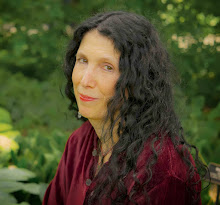This is from Laura Fraser, the co-founder and editorial director:
-->
Not
enough women are able to get their work published today—even the best women
writers. Almost three-quarters of the bylines in leading print and digital
publications belong to men. At Shebooks.net, we’ve decided to do
something about this problem: Publish more stories by women. We’ve launched
the Equal Writes Campaign to raise
money to publish great reads by as many women writers as possible in 2014.
I’m
the Editorial Director and co-founder of Shebooks.net, which publishes short
e-books by and for women. I’ve been a journalist and author for 30 years, and
while I’ve been relatively successful—one of my books was a NYT bestseller—I’ve
experienced how increasingly difficult it is to be published. One of my
cofounders, Peggy Northrop, has been the editor-in-chief of four magazines, and
a senior editor at many more, and she’s seen the space for women’s writing shrink
and shrink. Getting published is difficult for everyone, of course, as content
has been considered free on the Internet, and publishers are putting all their
money into their top earners and basically ignoring the rest. But it’s
particularly hard for women.
Why
is that? It’s a complicated question, having to do with both socialization and
sexism. On the one hand, we have what people call the "confidence
gap," where women are reluctant to pitch to magazines--they don't have the
sense that their work is worthy. And there has been some research that shows
that if women do pitch, if they are turned down, they tend to personalize that,
and think, "the magazine doesn't want me," whereas men might think,
"they answered my email; I'll nail it next time."
But
the other factor is plain old sexism. It's still very much a boys' club, where
male editors tend to trust male writers because they're part of the tribe. I've
been in the writers’ collective called the San Francisco Writers' Grotto for 15
years, for instance, and I've seen equally talented men and women approach male
editors at top-shelf magazines, and guys get the upper hand. I've had many
personal instances of sexism in my career. One recent one was when an editor on
a panel was describing a story in Italy he was considering. I approached him
and said I'd like to pitch him on it--I speak fluent Italian and know Italy
well. His immediate response was, "Oh, I was kind of looking for a science
guy." He automatically assumed I don't write about science--which I
have done, quite a bit--which is not what he might have assumed about a guy.
And, well, a guy would have had the "guy" part of his remark down.
Now, if you asked that editor if he was sexist and if he felt women should be
equally published, he's a nice liberal guy who would have said "of
course," and would have had no inkling of his deeper prejudices. Now,
maybe it had to do with me and my writing. That's certainly a possibility. But
his answer seemed automatic. (I did persist and check out the story, calling
Italian journalist friends to get the scoop, and it turned out to not be the
story the editor thought it was.)
Shebooks
wants to change inequities in publishing by giving great women writers a
platform. We want to raise their visibility not only to our own readers but to
other publications.
My
partners and I—the third is Rachel Greenfield, who was the EVP of Martha
Stewart Publishing–have been excited by the explosion of digital media, which
is giving readers new ways to find compelling stories. And we’re pleased to see
writers find fresh ways to work and make money outside the usual channels.
But
even on these new media platforms, the problem has persisted that female
authors, journalists, editors—and ultimately female readers—are being shut out
of the revolution. Innovative digital publishing companies led by men and
publishing mostly male writers are getting lots of investment and attention.
But we know that women are voracious readers in every format—buying the
majority of books and magazines and reading (and writing) the majority of
blogs.
So
we decided not to wait for our invitation to the party. Shebooks.net was the result: a new
media format, real money for writers (our writers all share in our profits),
and engaging stories that women can’t wait to read, that fit the corners of
their busy lives. We’ve been amazed at the quality of writing we’ve been able
to publish.
We
hope lots of readers and writers will join our Equal Writes Campaign. We publish
mainly seasoned writers, but if you’re an aspiring writer, you can pledge at
our $35 level and one of our editors will take a look at your manuscript—for
possible inclusion in a Shebooks anthology.
Please
spread the word—and thanks so much!
Laura Fraser
co-founder, Shebooks
Please pledge to join our Equal Writes
campaign! http://kck.st/1kbVVz7












